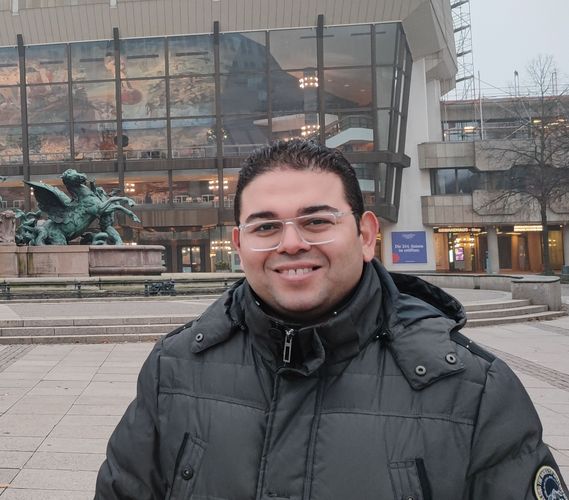The 40-year-old studied animal production at Ain Shams University in Egypt and animal nutrition at Cairo University. He completed his doctorate in 2017 at the Faculty of Veterinary Medicine and Animal Sciences at the University of Life Sciences in Poznań, Poland. He now works in his home country of Egypt at the National Research Centre in Giza as an Associate Professor at the Institute of Food Industry and Nutrition Research.
Dr El-Sherbiny has been working at Leipzig University since 1 November. Over the coming months, he will be working with the team led by Institute Director Professor Mirja Wilkens on the RUMENLESS project, which he and Wilkens initiated. “When assessing feed for ruminants in the laboratory, various methods are used to determine degradability in order to estimate digestibility in the animal’s body. These analyses are essential for assessing the feed value of alternative feeds and by-products used to improve sustainability,” says Mohamed El-Sherbiny. At the same time, these techniques could also be used to analyse the effects of drought on the quality of already well-established feedstuffs. Most of these methods use rumen fluid obtained from animals after slaughter or via a surgically created artificial stomach outlet.
Dr El-Sherbiny emphasises that the aim of the RUMENLESS project is to develop an approach to evaluate different feedstuffs in the laboratory without the use of fresh rumen fluid. “Such evaluations are essential for changing the way ruminants are fed in the future. With methods that can be implemented without or with preserved rumen fluid, we can meet the challenges in agriculture and at the same time do something for animal welfare,” says the Humboldt Research Fellow. In addition to his work on the RUMENLESS project, Dr El-Sherbiny would like to expand his scientific network with colleagues in Germany and establish long-term collaborations.






























































